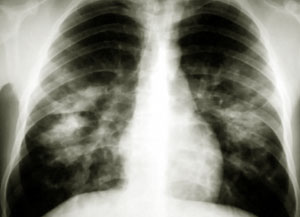
Symptoms of Chlamydia Pneumoniae
The different Chlamydia pneumoniae symptoms indicate that the Chlamydia pneumoniae can cause different problems in the body. A clear understanding of the different Chlamydia pneumoniae symptoms would ensure that you can take the right treatment steps at the earliest and benefit from a quick identification. The different Chlamydia pneumoniae symptoms indicate the impact of the Chlamydia pneumoniae on the cells of the body and the required degree of medical treatment. The chlamydia syndrome - possible symptoms of chlamydial infection - by doctor Silke Brockmann
The contribution may be in the refereed or generated hypotheses about relationships of chlamydial infections with previously unexplained symptoms or syndromes I support with my analysis. I look at my patient clientele since 1993, more than three hundred cases who experienced a particular constellation of symptoms, while positive chlamydia IgG antibodies (titers between 1:100 and 1:3200) were detected. The antibody was determined without differentiation of the three serotypes (C. psittaci, C. pneumoniae, C. trachomatis). Based on the observation that these patients experience an improvement in symptoms with antibiotic treatment - I came, I developed the hypothesis that there is a Chlamydia syndrome that is characterized by the following symptom complex - doxycycline or erythromycin (derivatives):
The insurmountable fatigue was the symptom that was most common treatment occasion. The rest of the constellation of symptoms has similarities to clinically defined syndromes such as fibromyalgia and chronic fatigue syndrome. According to my measurements are the complete disappearance of symptoms associated with negative chlamydial antibody formation. The existence of a prevalence of no clinical significance, I can not confirm from my data. As sources of infection come to my knowledge not only exotic birds, chickens and pigeons in question, but also cats, rabbits, domestic rodents and infected humans. Patients often live with strikingly positive chlamydial antibodies homes with mold growth, so that it would consider whether the obligate intracellular chlamydial growth of fungi may serve as host.
|
|
© 2014 "chlamydia-pneumoniae.org". All Rights Reserved |
